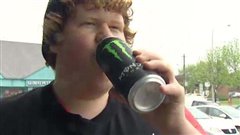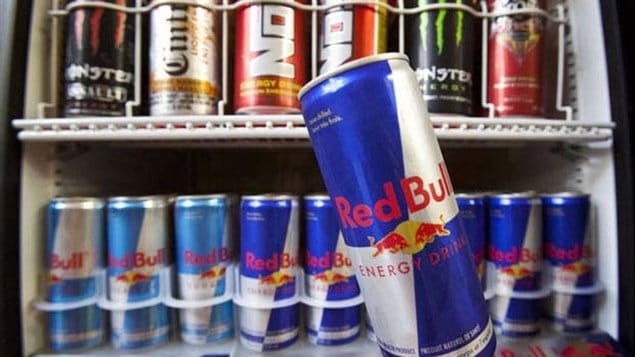A new study of thousands of Canadian teenagers shows concerns about the use of so-called “energy drinks”.
Sunday Azagba (PhD), is an assistant professor at School of Public Health at the University of Waterloo in Ontario, and a researcher at the Propel Centre for Population Health Impact.
ListenThe study by researchers at the University of Waterloo and Dalhousie University in Halifax is published in Preventive Medicine online

It surveyed more than 8, 200 teenage high school students in Atlantic Canada. It found that most (about 2/3) had consumed an energy drink in the past year, and about 20% said they consume one or more of the drinks each month.
While the study says there is no direct link, it found that intense users were more prone to other problems.
“The more intense users tend to be more likely to be depressed, they’re more likely to have substance use,” says professor Azagba. He says that substance abuse refers to alcohol and marijuana, and especially a tendency of young adults to mix the energy drinks with alcohol.
The caffeine content is said to be similar of that to a regular large cup of coffee, but they can also contain guarana, another stimulant, taurine an amino acid, and plenty of sugar. ten teaspoons on average.

Energy drinks have been associated with a number of adverse health effects, including cardiovascular symptoms, sleep disorders, nervousness and nausea. The side-effects are caused by the beverages’ high concentration of caffeine.
In 2012 a 25-year-old Korean student studying at Cape Breton University in Nova Scotia was deported after an outburst and threats against his residence advisor. At the time, the student’s lawyer said drinking too many of the caffeinated beverages triggered his client,
Professor Azagba is not suggesting energy drinks be banned, but that perhaps access by young children and teens should be limited or restricted.
- In 2011 the federal government rejected a call by an expert advisory panel which had that the sale of these drinks to young people be banned. New regulations however were put into effect. Health Canada requirements for the caffeine-filled beverages now include:
- Allowing a maximum concentration of 100mg of caffeine per 250 ml.
- Setting a maximum concentration of 180 mg of caffeine in any single-serve beverage.
- Requiring labels to indicate total caffeine content and say the product is a source of high caffeine.
- Limiting the types and levels of vitamins and minerals that can be added.
- Requiring statements on the product saying it is not recommended for children, pregnant and breastfeeding women.
- Making manufacturers add a warning that the drink shouldn’t be mixed with alcohol.







For reasons beyond our control, and for an undetermined period of time, our comment section is now closed. However, our social networks remain open to your contributions.